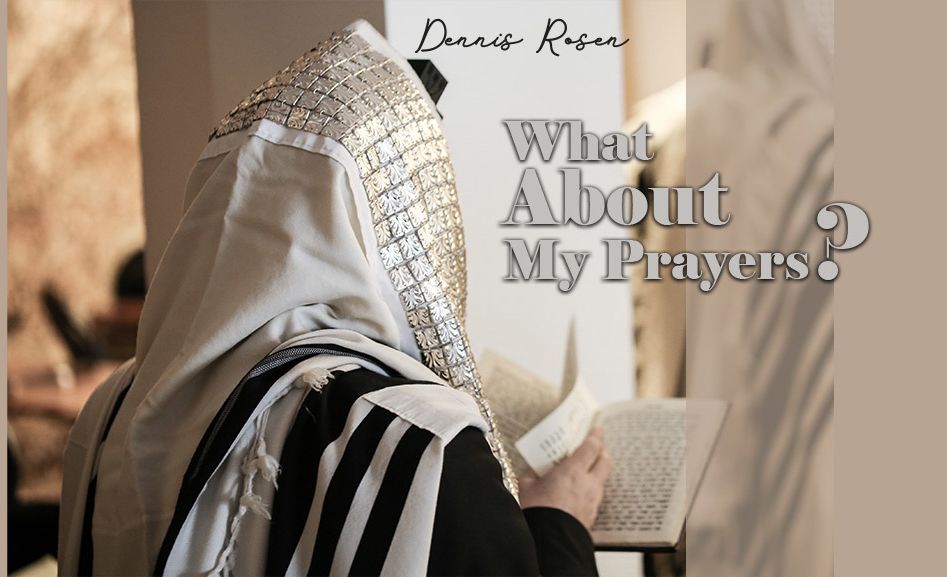
Eleven Principles of Emuna – A New Light
Prayers are accepted according to the strength of the emuna that is encompassed in them. Rabbi Arush gives us 11 principles to reach perfect emuna.

In Chapter 8, Rabbi Arush presents eleven fundamental principles of emuna. I recommend reading these repeatedly and incorporating them into your prayers. This will help build your emuna. In turn, your stronger emuna will animate your prayers, making them powerful and pleasing to the Creator.
Rabbi Arush explains that we must remember that prayers are accepted according to the strength of the emuna that is encompassed in them. The more perfect and complete the emuna inserted into the prayers – the more they are accepted.
Perfect and complete emuna consists of the following realizations:
1. Believing that G-d created the world, gives it life, guides it, and supervises down to the tiniest detail, that He pours abundance upon every thought word and deed, small and great, in the life of a person and in the life of the entire world.
2. Believing that there is nothing other than G-d, and that Hashem and only Hashem is able to help and save a person in every single area.
3. Believing that anyone can turn to the Creator with any situation, join with Him and take counsel with Him in all of his troubles.
4. Believing that your deficiencies are sent to you by the Creator for your own good, so that you will learn to thank Hashem, pray to Him and come close to Him.
5. Believing that all of the powers of nature are in Hashem’s hand, and that He can change nature without any limitation at all, and that G-d built into creation the reality that prayer has the power to change nature.
6. Believing that Hashem determines and judges everything in existence, and that the hearts of all people are in His hand. A person can desire to do good or bad, but ultimately, what actually happens is only because G-d Himself willed it – otherwise, it could not come to be.
7. Believing that Hashem is close to anyone who calls out to Him, that He loves every created being and that He wants to help and save every created being, even a transgressor and sinner, even the most wicked person.
8. Believing that the Creator’s compassion is infinite and without bounds, and that He created the entire universe in order to reveal His compassion and in order to help those who pray to him regarding every situation, even if they do not deserve anything.
9. Believing that Hashem does not desire that someone should suffer or die. G-d’s desire is for us to change our ways, come closer to Him, repent, pray – and live a wonderful life!
10. Believing that we do not need to “help” Hashem with any personal effort (hishtadlut) – rather, we must invest all of our strength and the vast majority of our efforts only into prayer.
11. Believing that the Creator derives great delight from the fact that we turn to Him, and that G-d loves hearing our prayers, and especially enjoys helping the beings He created who turn to Him.
Anyone who truly believes in Hashem will certainly invest all of his will into every word of prayer. Rabbi Nachman says in a number of places that emuna is prayer. In accordance with this, Rabbi Arush explains that Hashem accepts a person’s prayer in accordance with his emuna, because only when emuna exists is it possible to pray in a perfect manner.
For this reason, to begin the work necessary and arouse our will in prayer, we must learn more about emuna. Therefore, we must read and reread the books The Garden of Emuna and The Garden of Gratitude, which will teach us all of the ins and outs of emuna and gratitude to Hashem, and fill us with strong emuna, which will enable us to do amazing things with our prayers!
Emuna and prayer are mutually reinforce each other. Strong emuna generates powerful prayers. In turn, strong prayer fortifies emuna. According to how much you believe and trust in Hashem, so too, Hashem will act towards you.
Rabbi Arush often says that someone who believes in Hashem, talks to Him. The reverse is also true: The more you talk to Hashem, the more you’ll believe in Him.
May it be Hashem’s will that we remember, internalize, and apply these principles and may our prayers find favor in the eyes of Hashem.












Tell us what you think!
Thank you for your comment!
It will be published after approval by the Editor.